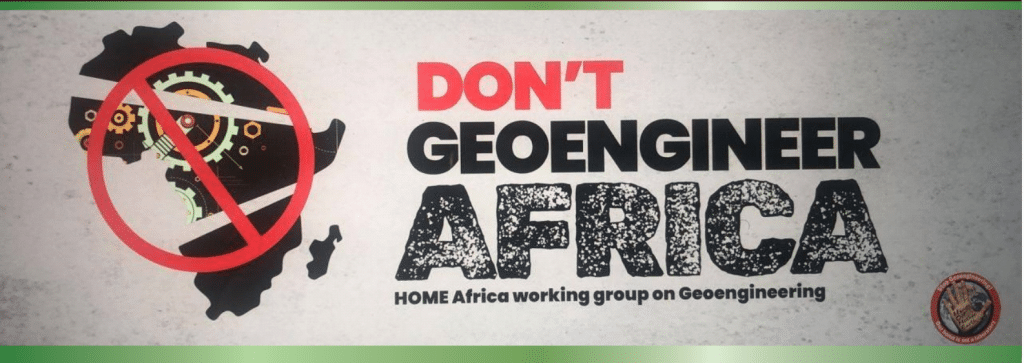Africa, one of the regions most vulnerable to climate change, is increasingly being targeted as a potential test site for solar geoengineering technologies, particularly solar radiation management (SRM). This controversial approach aims to reflect sunlight back into space to cool the planet. However, experts are warning that SRM poses serious risks and should not be tested or deployed in Africa.
Solar geoengineering does not address the root causes of climate change greenhouse gas emissions but instead attempts to mask their effects. The method could severely disrupt rainfall patterns, especially the monsoons critical for agriculture in large parts of Africa, threatening food security, water availability, and entire ecosystems. Communities that already suffer from climate vulnerabilities could face even greater hardship.
There is also a strong ethical concern. Testing geoengineering technologies in Africa risks repeating the historic pattern of the Global South bearing the consequences of experiments and decisions made in the Global North. Often, these trials are funded and governed externally, with little or no local consent or control. Even when African scientists participate, the strategic decisions usually remain in the hands of foreign institutions.
Moreover, there are currently no global treaties or regulatory frameworks in place to oversee or control the research and deployment of SRM. While many African leaders, civil society groups, and climate justice advocates have called for a global moratorium on SRM testing, enforcement mechanisms are still lacking. Without formal governance, African countries could be exposed to environmental and political risks.
Scientific modeling has shown that SRM could lead to unintended effects such as droughts in the Sahel, increased health risks including malaria, and a phenomenon known as termination shock where stopping SRM abruptly could cause rapid and dangerous temperature spikes. The uncertainty surrounding these outcomes makes SRM an especially dangerous gamble for African nations.
A growing coalition of African governments, NGOs, scientists, and climate networks continues to push for international agreements that prohibit solar geoengineering testing on the continent. These groups advocate instead for investing in proven, people-centered climate solutions such as emissions reduction, renewable energy expansion, adaptation strategies, and ecological restoration.
To protect Africa’s future, climate strategies must be rooted in justice, science, and sustainability. African countries must have the right to say no to geoengineering and must be supported in leading efforts to build resilient, low-carbon economies. Rather than diverting resources into risky experiments, global efforts should strengthen Africa’s capacity to adapt and thrive in the face of climate change.
Solar geoengineering is not a solution it is a distraction. Africa must not be used as a laboratory for technologies that could endanger its people, ecosystems, and long-term stability. Real climate progress lies in equity, emissions cuts, and locally-driven innovation.



Comments (0)
No comments yet. Be the first to comment!
Leave a Comment